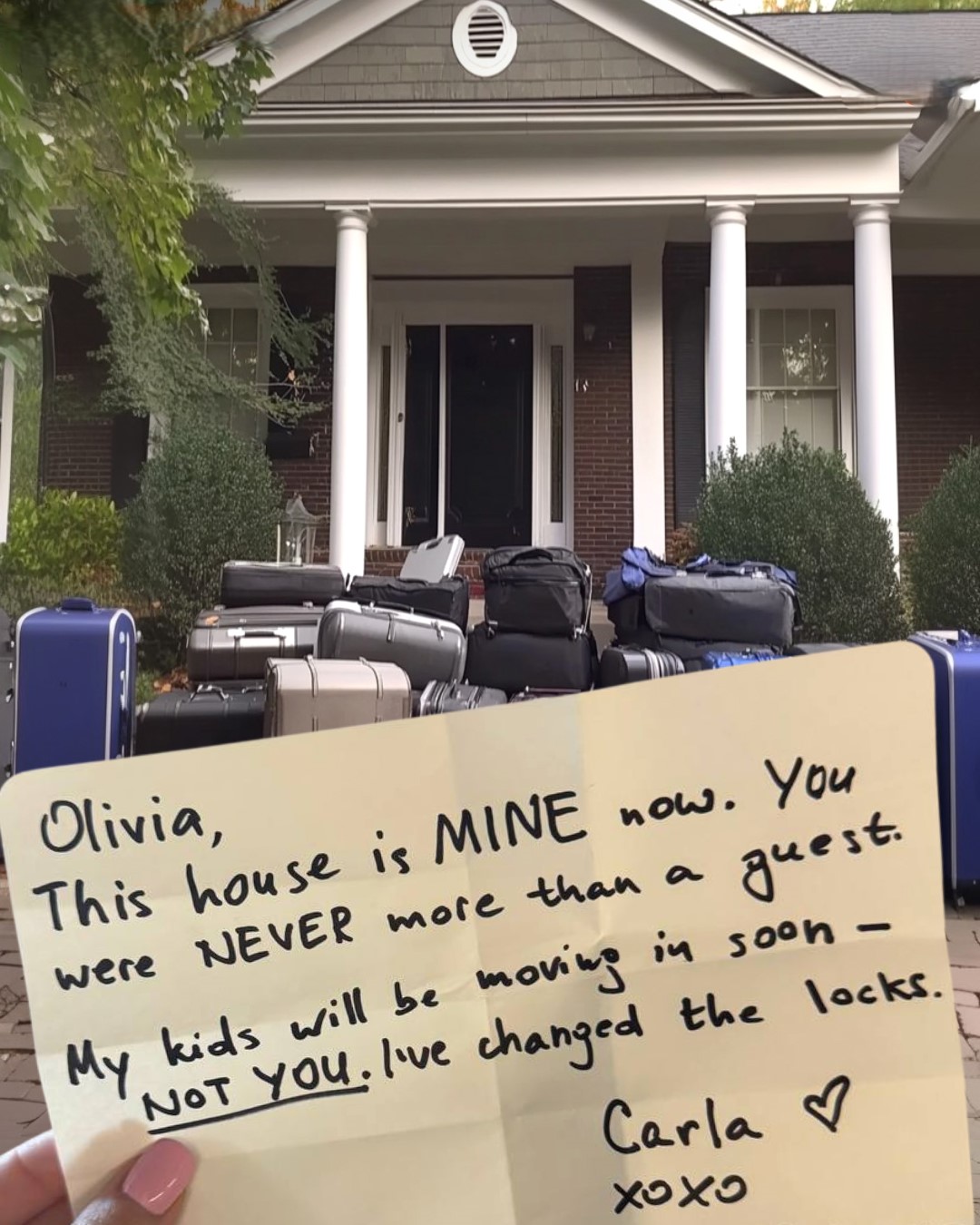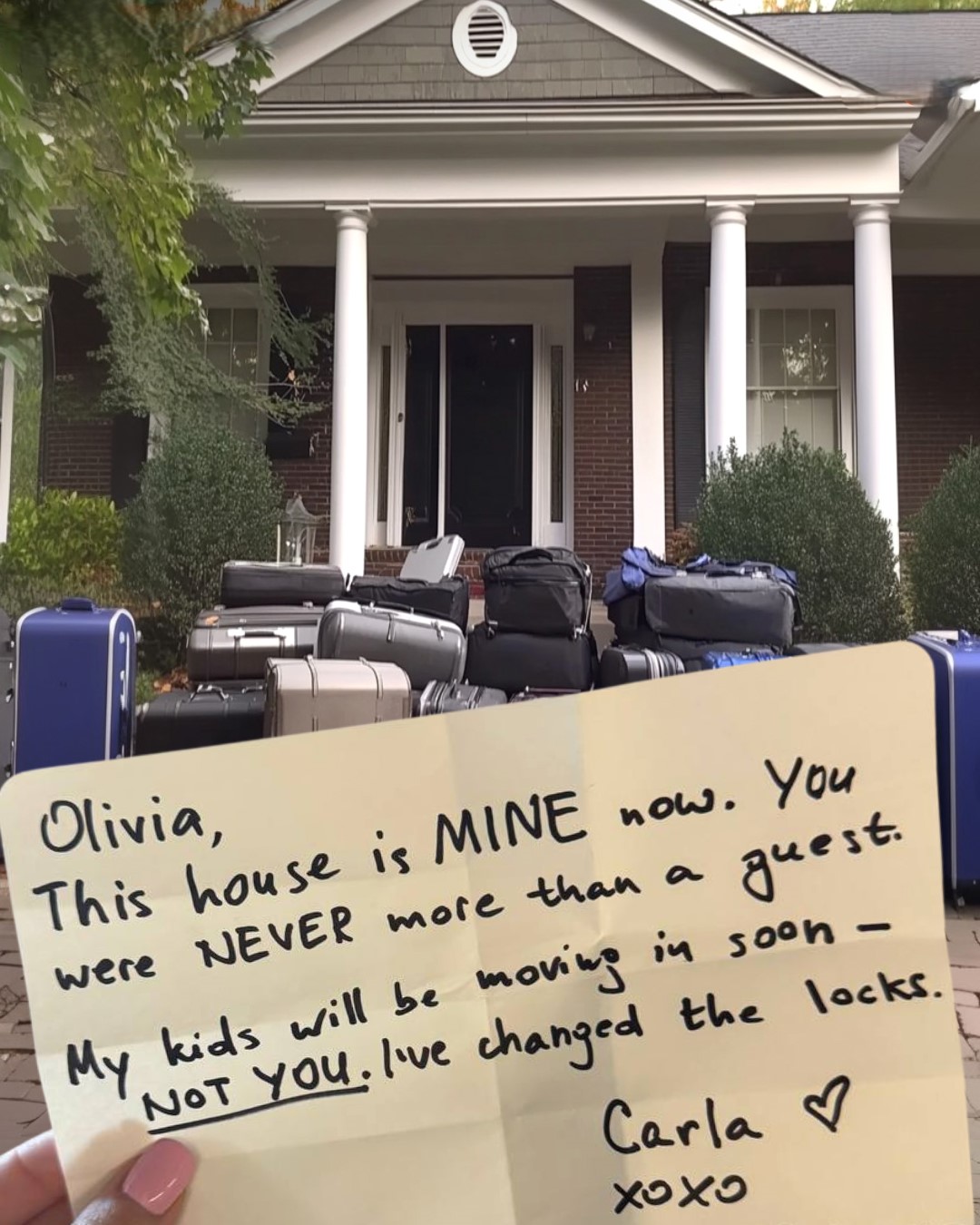
Just days after my father’s passing, I returned to my childhood home seeking comfort in memories—only to be met with a painful shock. The locks had been changed. A note taped to the door in my stepmother Carla’s familiar handwriting read: “This house is mine now.” My heart sank. But little did she know, my father had foreseen everything—and had left behind a plan that would change everything.
The image of my father’s casket being lowered into the earth was still fresh in my mind. He had always been my anchor, especially after my mother passed. Losing him to a sudden stroke at 58 had left a wound no words could heal. After the funeral, Carla’s voice pierced the solemn silence: “We should get back to the house. People will be arriving.” Her demeanor was composed, her eyes hidden behind dark glasses, her expression unreadable.
Back at the house, I wandered from room to room, each one echoing with memories of Dad—teaching me to ride a bike, surprising me with a telescope one Christmas, and quietly supporting me through grief. In his study, as I ran my fingers along his books, Carla appeared beside me. “He wouldn’t want all this moping,” she said. “Life goes on.” I replied softly, “It’s been three hours.” She offered a cool smile and walked away, allowing me the weekend to sort through his things.
Three days later, I left briefly to clear my head. When I returned that Monday, my key no longer worked. On the door was an envelope with my name. Inside was a message I’ll never forget:
“This house is mine now. You were a guest. My kids will be moving in. Time to grow up and move on. — Carla.”
I found my belongings—suitcases, a painting my mother completed before she passed, and an urn holding my childhood dog’s ashes—set out on the porch. I stood frozen, heartbroken. When I knocked and called out, a police officer soon arrived, explaining that a complaint had been made. I tried to explain it was my father’s house, but the officer could only enforce what the current legal documentation allowed. I packed my things and drove away, Carla’s distant silhouette behind the window.
That evening, while trying to make sense of everything, I received a call from my father’s lawyer, Mr. Abernathy. “There’s something important we need to discuss,” he said. “Has Carla contacted you?” I told him everything, and he urged me to come to his office the next day.
What he told me changed everything.
Six months before his passing, my father had placed the house in a trust—in my name. Legally, the property belonged to me. Carla had no authority to change the locks or ask me to leave. I remembered a brunch with Dad not long before, where he mentioned updating important paperwork. At the time, I hadn’t understood just how important that would be.
Mr. Abernathy asked me what I wanted to do next. I responded with clarity: I was ready to honor my father’s wishes.
For three weeks, Carla believed she had taken full control. Meanwhile, the proper legal steps were taken to reclaim the home. On a Tuesday morning, she was served official notice. By 9:15 a.m., my phone rang—her voice on the other end, tense and shocked. I said nothing and chose not to engage.
She attempted to challenge the trust, but everything had been handled thoroughly by my father and his legal team. After a court hearing, the judge ruled in my favor, giving Carla 30 days to vacate. When she failed to comply, I returned on day 31 with a locksmith, movers, and a court order.
Carla opened the door with visible frustration. “You think you can just take everything?” she asked. I replied calmly, “Only what my father intended me to have.” I handed her the order. For the first time, her confidence faltered.
Over the next few days, I restored the home—washing away the tension, repainting the walls in my father’s favorite color, and rehanging cherished family photos. In his office, the one room untouched, I found a locked drawer containing a heartfelt letter and a silver key. “Liv,” it read, “If you’re reading this, I’m no longer there—but I’ve made sure you’re protected. I love you. —Dad.”
The key opened a small box hidden in the back of the closet. Inside were photographs, documents, and letters—proof that Dad had known of Carla’s actions and had prepared accordingly. It wasn’t about revenge. It was about making sure I was safe and cared for.
As I sat on the floor of his study, surrounded by memories and truths, I finally let the tears fall.
Six months later, I sat on the porch swing Dad built when I was little, watching the sun set over the garden he once tended. I had repainted the house, restored our family’s keepsakes, and breathed life back into the home. A notification lit up my phone—an old college friend had tagged me in a post, something about Carla venting at a café. I smiled gently and put my phone down.
“Thank you, Dad,” I whispered into the breeze. “You were right. People reveal themselves over time. And sometimes, if we’re lucky, we get to see how the truth wins. Quietly, powerfully—and in exactly the way it was meant to.”



